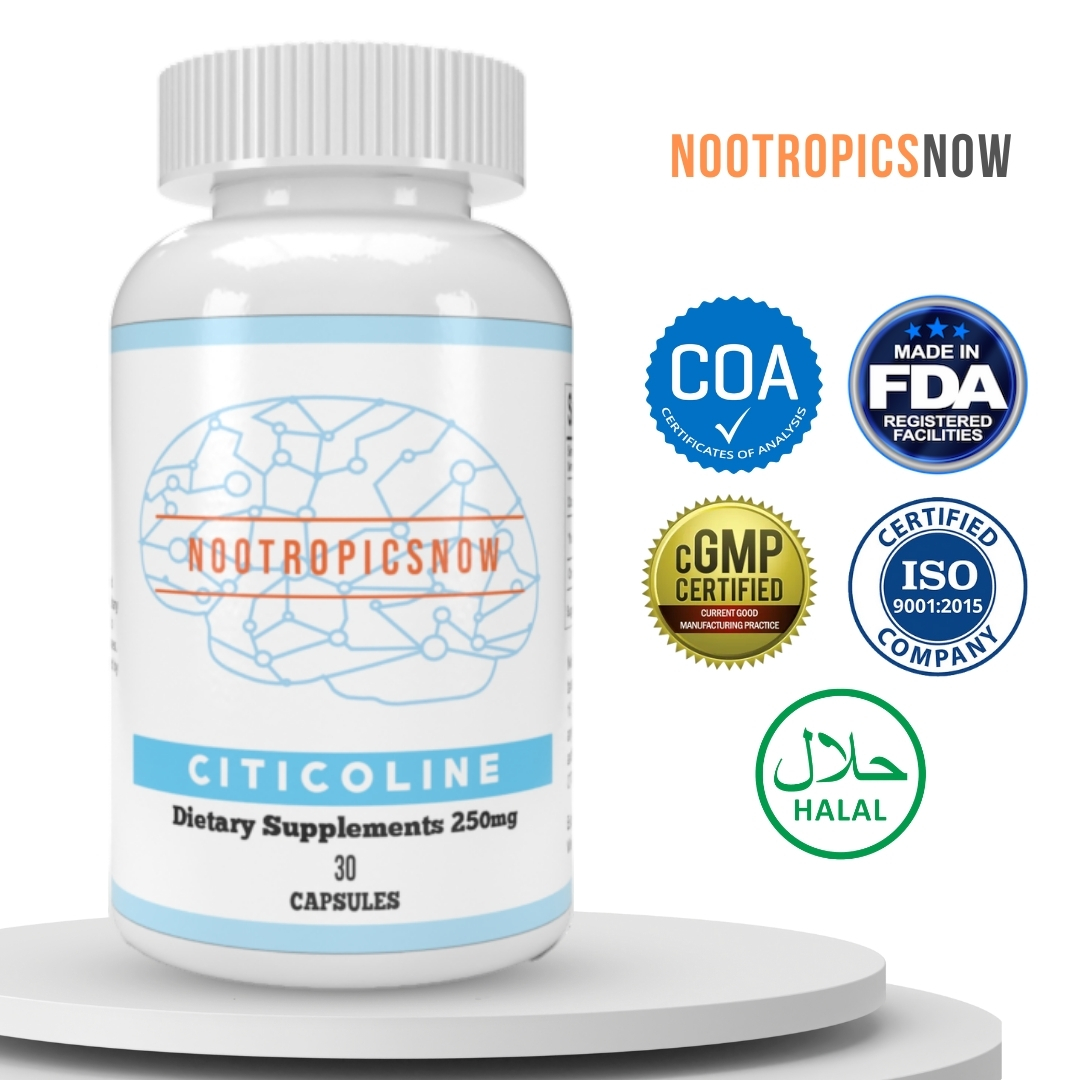Brain Vitamins for Kids: Boost Their Brainpower

Brain Vitamins for Kids: Nurturing Cognitive Development
Ensuring optimal brain health in children is crucial for their cognitive development, academic performance, and overall well-being. While a balanced diet forms the cornerstone of brain health, certain vitamins and minerals, often termed “brain vitamins,” play a pivotal role. This article delves into essential brain vitamins for kids, highlighting their benefits, food sources, and supplement options.
Understanding the Importance of Brain Vitamins

The brain undergoes significant development during childhood and adolescence. Providing the necessary nutrients during these critical periods supports optimal brain function, including memory, concentration, learning, and mood regulation. Deficiencies in certain vitamins and minerals can hinder cognitive development and potentially lead to learning difficulties or behavioral issues. Therefore, ensuring an adequate intake of brain vitamins is a proactive approach to supporting a child’s full potential.
Key Brain Vitamins and Their Benefits
Several vitamins and minerals are particularly important for brain health in children. These nutrients work synergistically to support various aspects of cognitive function.
1. Omega-3 Fatty Acids: DHA and EPA
Omega-3 fatty acids, particularly docosahexaenoic acid (DHA) and eicosapentaenoic acid (EPA), are essential for brain structure and function. DHA is a major structural component of brain cell membranes, while EPA possesses anti-inflammatory properties that benefit brain health.
Benefits:
Supports brain development and growth.
Enhances memory and learning abilities.
Improves focus and attention span.
May reduce symptoms of ADHD.
Supports mood regulation.
Food Sources: Fatty fish (salmon, tuna, mackerel), flaxseeds, chia seeds, walnuts, algae-based supplements.
2. B Vitamins: B6, B12, and Folate (B9)
B vitamins are crucial for energy production, nerve function, and neurotransmitter synthesis. They play a vital role in cognitive processes and overall brain health.
Vitamin B6 (Pyridoxine):
Benefits: Involved in the synthesis of neurotransmitters like serotonin and dopamine, which regulate mood and cognitive function. Supports healthy brain development.
Food Sources: Chicken, fish, potatoes, bananas, fortified cereals.
Vitamin B12 (Cobalamin):
Benefits: Essential for nerve cell function and the formation of red blood cells, which carry oxygen to the brain. May improve memory and concentration.
Food Sources: Meat, poultry, fish, eggs, dairy products, fortified plant-based milk.
Folate (Vitamin B9):
Benefits: Crucial for brain development and function. It plays a role in DNA synthesis and cell growth, which are essential for brain health. May help reduce the risk of neural tube defects during pregnancy (important for expectant mothers).
Food Sources: Leafy green vegetables (spinach, kale), beans, lentils, fortified grains, citrus fruits.
3. Vitamin D
Vitamin D, often called the “sunshine vitamin,” is essential for bone health, immune function, and brain development. Research suggests that vitamin D deficiency may be linked to cognitive decline and mood disorders.
Benefits:
Supports brain development and cognitive function.
May improve mood and reduce symptoms of depression.
Plays a role in calcium absorption, crucial for nerve function.
Food Sources: Fatty fish (salmon, tuna), egg yolks, fortified milk, fortified cereals, sunlight exposure.
4. Choline
Choline is an essential nutrient that plays a critical role in brain development and function. It is a precursor to acetylcholine, a neurotransmitter involved in memory, learning, and muscle control.
Benefits:
Supports brain development during pregnancy and infancy.
Enhances memory and learning abilities.
May improve attention span and cognitive function.
Food Sources: Eggs, beef liver, chicken, fish, soybeans, broccoli, cauliflower.
5. Vitamin E
Vitamin E is a powerful antioxidant that protects brain cells from damage caused by free radicals. Oxidative stress can impair cognitive function, so ensuring adequate vitamin E intake is vital for long-term brain health.
Benefits:
Protects brain cells from oxidative stress and damage.
May improve memory and cognitive function.
Supports overall brain health.
Food Sources: Nuts (almonds, hazelnuts), seeds (sunflower seeds), vegetable oils (wheat germ oil), leafy green vegetables (spinach, kale).
6. Iron
Iron is essential for transporting oxygen in the blood, which is crucial for brain function. Iron deficiency can lead to fatigue, poor concentration, and impaired cognitive development.
Benefits:
Supports oxygen transport to the brain.
Enhances concentration and focus.
Improves energy levels and reduces fatigue.
Supports cognitive development.
Food Sources: Red meat, poultry, fish, beans, lentils, spinach, fortified cereals.
7. Zinc
Zinc is an essential mineral involved in various brain functions, including neurotransmitter synthesis and synaptic plasticity (the brain’s ability to change and adapt). Zinc deficiency can impair cognitive function and affect mood.
Benefits:
Supports neurotransmitter synthesis.
Enhances cognitive function and memory.
May improve mood and reduce anxiety.
Supports immune function.
Food Sources: Meat, poultry, seafood, nuts, seeds, beans, whole grains.
Recognizing Signs of Potential Vitamin Deficiencies
It is important to be aware of the potential signs of vitamin deficiencies in children. These signs can indicate that a child may not be receiving adequate nutrition to support optimal brain health. Contact a pediatrician if you notice any of the following:
Fatigue and Low Energy: Persistent tiredness and lack of energy can indicate a deficiency in iron or B vitamins.
Poor Concentration and Focus: Difficulty concentrating or paying attention in school or during activities could be a sign of iron, omega-3, or zinc deficiency.
Memory Problems: Difficulty remembering things or learning new information may be related to deficiencies in choline, B vitamins, or omega-3 fatty acids.
Mood Swings and Irritability: Frequent mood swings, irritability, or anxiety could be linked to deficiencies in vitamin D, B vitamins, or omega-3 fatty acids.
Developmental Delays: Slower than expected cognitive or motor development can be a sign of multiple vitamin and mineral deficiencies.
Skin Problems: Some deficiencies, such as zinc, can manifest as skin rashes or eczema.
Poor Appetite: Lack of appetite may indicate a zinc deficiency.
Integrating Brain Vitamins into a Child’s Diet
The best way to ensure children receive adequate brain vitamins is through a balanced and varied diet. Encourage children to eat a rainbow of fruits and vegetables, lean protein sources, whole grains, and healthy fats. Here are some practical tips for incorporating brain-boosting foods into a child’s diet:
Offer Fatty Fish Regularly: Aim to include salmon, tuna, or mackerel in meals at least twice a week.
Include Nuts and Seeds: Add walnuts, flaxseeds, or chia seeds to smoothies, yogurt, or oatmeal.
Serve Leafy Green Vegetables: Incorporate spinach, kale, or other leafy greens into salads, soups, or side dishes.
Make Eggs a Staple: Eggs are a versatile and nutritious food that can be served in various ways (scrambled, boiled, omelets).
Snack on Berries: Offer blueberries, strawberries, or raspberries as healthy and delicious snacks.
Choose Fortified Foods: Select fortified cereals, milk, or plant-based milk to boost vitamin D, B vitamins, and iron intake.
Involve Children in Meal Preparation: Encourage children to participate in meal planning and preparation to increase their interest in trying new foods.
Addressing Picky Eaters
Many children are picky eaters, which can make it challenging to ensure they receive adequate brain vitamins. Here are some strategies for dealing with picky eating:
Introduce New Foods Gradually: Offer small portions of new foods alongside familiar favorites.
Make Food Fun: Cut fruits and vegetables into fun shapes, create colorful plates, or involve children in cooking activities.
Don’t Pressure Children to Eat: Forcing children to eat can create negative associations with food. Instead, offer a variety of healthy options and let them choose what they want to eat.
Be a Role Model: Children are more likely to try new foods if they see their parents or caregivers eating them.
Sneak in Nutrients: Add pureed vegetables to sauces or smoothies.
Supplementing Brain Vitamins: When and How
While a balanced diet should be the primary source of brain vitamins, supplements can be beneficial in certain situations. Supplements can help bridge nutritional gaps, especially for picky eaters, children with dietary restrictions, or those with specific medical conditions.
Choosing the Right Supplements
When selecting brain vitamin supplements for kids, consider the following factors:
Age-Appropriate Formulation: Choose supplements specifically formulated for children’s age and weight.
Reputable Brand: Select supplements from reputable brands that have been tested for quality and purity.
Third-Party Certification: Look for supplements that have been third-party certified by organizations like NSF International or USP.
Ingredients: Check the ingredient list to ensure the supplement contains the desired vitamins and minerals in appropriate dosages. Avoid supplements with artificial colors, flavors, or sweeteners.
Form: Choose a form that is easy for children to take, such as chewable tablets, gummies, or liquid drops.
Consult with a Healthcare Provider: Talk to a pediatrician or registered dietitian before starting any new supplements to determine the appropriate dosage and ensure there are no potential interactions with other medications.
Types of Brain Vitamin Supplements
Here are some common types of brain vitamin supplements for kids:
Multivitamins: Multivitamins provide a comprehensive blend of essential vitamins and minerals, including brain vitamins like B vitamins, vitamin D, and vitamin E.

View Product
Omega-3 Supplements: Omega-3 supplements typically contain DHA and EPA from fish oil or algae oil. These supplements are beneficial for children who do not consume enough fatty fish.

View Product
Vitamin D Supplements: Vitamin D supplements are available in various forms, including drops, chewable tablets, and gummies. These supplements are particularly important for children who have limited sun exposure.

View Product
Choline Supplements: Choline supplements are less common than other brain vitamin supplements but can be beneficial for children with choline deficiencies.
Dosage Considerations
It is crucial to follow the recommended dosage guidelines for brain vitamin supplements. Giving children too much of certain vitamins and minerals can be harmful. Consult with a healthcare provider to determine the appropriate dosage for your child’s age, weight, and nutritional needs.
Lifestyle Factors that Support Brain Health
In addition to diet and supplementation, several lifestyle factors play a crucial role in supporting brain health in children.
Adequate Sleep
Sleep is essential for brain development, memory consolidation, and cognitive function. Children need adequate sleep each night to perform their best during the day.
Recommended Sleep Hours:
Preschoolers (3-5 years): 10-13 hours per night
School-aged children (6-12 years): 9-12 hours per night
Teenagers (13-18 years): 8-10 hours per night
Tips for Promoting Good Sleep:
Establish a consistent bedtime routine.
Create a relaxing sleep environment (dark, quiet, cool).
Limit screen time before bed.
Avoid caffeine and sugary drinks in the evening.
Regular Physical Activity
Physical activity is beneficial for both physical and mental health. Exercise increases blood flow to the brain, stimulates the growth of new brain cells, and improves cognitive function.
Recommended Physical Activity:
Children and adolescents should engage in at least 60 minutes of moderate-to-vigorous physical activity each day.
Tips for Encouraging Physical Activity:
Make exercise fun (play games, go for walks, ride bikes).
Involve children in sports or extracurricular activities.
Limit sedentary activities (watching TV, playing video games).
Cognitive Stimulation
Engaging in activities that challenge the brain can help improve cognitive function and memory.
Cognitive Stimulation Activities:
Reading
Puzzles
Board games
Learning a new language
Playing a musical instrument
Creative activities (drawing, painting, writing)
Stress Management
Chronic stress can negatively impact brain health and cognitive function. Teach children healthy coping mechanisms for managing stress.
Stress Management Techniques:
Deep breathing exercises
Mindfulness and meditation
Yoga
Spending time in nature
Talking to a trusted adult
Limiting Screen Time
Excessive screen time can interfere with sleep, attention span, and cognitive development. Encourage children to limit their screen time and engage in other activities.
Recommended Screen Time:
Children ages 2-5: Limit screen time to 1 hour per day of high-quality programming.
Children ages 6 and older: Set consistent limits on screen time and ensure it does not interfere with sleep, physical activity, or other healthy behaviors.
Conclusion: A Holistic Approach to Brain Health
Supporting brain health in children requires a holistic approach that encompasses diet, supplementation, lifestyle factors, and regular check-ups with a healthcare provider. By providing children with the essential brain vitamins, encouraging healthy habits, and addressing any potential deficiencies, you can help them reach their full cognitive potential and thrive academically, socially, and emotionally. Always consult with a pediatrician or registered dietitian before making significant changes to a child’s diet or starting any new supplements. Remember, nurturing a child’s brain health is an investment in their future.
Brain Vitamins for Kids: Enhancing Cognitive Function and Development
Ensuring children receive proper nutrition is crucial for their overall development. Brain vitamins play a key role in supporting cognitive function, memory, and concentration. Let’s explore essential brain vitamins for kids and how to incorporate them into their diets.
Why Brain Vitamins Matter
Children’s brains are rapidly developing. Therefore, they require specific nutrients to support optimal growth and function. These nutrients, commonly referred to as brain vitamins, fuel cognitive processes and lay the foundation for future learning and development. Deficiencies in certain vitamins can lead to impaired cognitive function, learning difficulties, and behavioral issues. Consequently, focusing on brain-boosting nutrients is essential for every parent.
Key Brain Vitamins for Kids
Several vitamins and minerals contribute significantly to brain health in children. Understanding these key nutrients allows parents and caregivers to make informed decisions about their children’s diets and supplementation.
1. Omega-3 Fatty Acids (DHA and EPA)
Omega-3 fatty acids, particularly docosahexaenoic acid (DHA) and eicosapentaenoic acid (EPA), are vital for brain health and development. They are crucial building blocks of the brain and support various cognitive functions.
Benefits of Omega-3s:
Improved Memory: DHA enhances memory function and learning capabilities.
Enhanced Mood: Omega-3s contribute to emotional well-being and reduce the risk of mood swings.
Increased Attention Span: These fatty acids support focus and concentration, particularly helpful for children with attention deficits.
Better Cognitive Function: Overall, Omega-3s support cognitive abilities.
Food Sources of Omega-3s:
Fatty Fish: Salmon, tuna, mackerel, and sardines are excellent sources.
Flaxseeds and Chia Seeds: These seeds provide a plant-based source of ALA, a precursor to DHA and EPA.
Walnuts: These nuts are a good source of ALA.
Fortified Foods: Some yogurts, milk, and eggs are fortified with Omega-3s.
Supplementation: If your child doesn’t consume enough Omega-3-rich foods, consider a high-quality Omega-3 supplement, such as fish oil or algal oil.
2. B Vitamins (B6, B12, and Folate)
The B-vitamin family plays a crucial role in energy production, neurotransmitter synthesis, and nerve function, all of which are essential for brain health.
Benefits of B Vitamins:
Vitamin B6: Supports neurotransmitter production, which impacts mood, focus, and sleep.
Vitamin B12: Crucial for nerve cell maintenance and the formation of red blood cells, which carry oxygen to the brain.
Folate (B9): Essential for brain development and helps prevent neural tube defects during pregnancy, as well as supporting cognitive function in children.
Food Sources of B Vitamins:
Meat and Poultry: Excellent sources of Vitamin B12 and B6.
Eggs: Provide B12 and choline.
Leafy Green Vegetables: Spinach, kale, and collard greens are rich in folate.
Fortified Cereals: Many breakfast cereals are fortified with B vitamins.
Legumes: Beans and lentils offer folate and B6.
Supplementation: A B-complex supplement can ensure your child receives adequate amounts of all B vitamins.
3. Vitamin D
Vitamin D, often called the “sunshine vitamin,” plays a critical role in bone health and brain function. It is involved in the development and function of neurons, and also influences mood regulation.
Benefits of Vitamin D:
Supports Brain Development: Vitamin D contributes to the healthy growth and development of brain cells.
Enhances Mood: Adequate Vitamin D levels are associated with a more positive mood and reduced risk of depression.
Improves Cognitive Function: Vitamin D supports cognitive abilities, including memory and attention.
Food Sources of Vitamin D:
Fatty Fish: Salmon, tuna, and mackerel provide Vitamin D.
Fortified Milk and Yogurt: Many dairy products are fortified with Vitamin D.
Egg Yolks: Contain a small amount of Vitamin D.
Fortified Cereals: Some cereals are fortified with Vitamin D.
Supplementation: Vitamin D deficiency is common, especially in children who live in areas with limited sunlight exposure. Therefore, supplementation is often recommended, particularly during the winter months.
4. Choline
Choline is an essential nutrient that is crucial for brain development and function, particularly in the formation of cell membranes and neurotransmitter synthesis.
Benefits of Choline:
Supports Brain Development: Choline plays a vital role in the development of the brain and nervous system.
Enhances Memory: Choline is a precursor to acetylcholine, a neurotransmitter involved in memory and learning.
Improves Cognitive Function: Choline supports overall cognitive abilities, including attention and processing speed.
Food Sources of Choline:
Eggs: Egg yolks are one of the richest sources of choline.
Meat and Poultry: Beef, chicken, and turkey provide choline.
Fish: Salmon and cod are good sources.
Legumes: Beans and lentils offer choline.
Cruciferous Vegetables: Broccoli and cauliflower contain choline.
Supplementation: While choline is available in various foods, supplementation may be necessary if your child doesn’t consume enough choline-rich foods.
It can be helpful to have a high-quality choline supplement on hand.

View Product
5. Vitamin E
Vitamin E is a powerful antioxidant that protects brain cells from oxidative stress and damage caused by free radicals. Oxidative stress can impair cognitive function and contribute to age-related cognitive decline, thus making Vitamin E an important protector.
Benefits of Vitamin E:
Protects Brain Cells: Vitamin E shields brain cells from damage caused by free radicals.
Supports Cognitive Health: Vitamin E contributes to overall cognitive health and memory retention.
Enhances Blood Flow: Some studies suggest Vitamin E may improve blood flow to the brain.
Food Sources of Vitamin E:
Nuts and Seeds: Almonds, sunflower seeds, and hazelnuts are excellent sources.
Vegetable Oils: Sunflower, safflower, and wheat germ oil provide Vitamin E.
Leafy Green Vegetables: Spinach and kale contain Vitamin E.
Fortified Foods: Some cereals and spreads are fortified with Vitamin E.
Supplementation: If your child’s diet is lacking in Vitamin E-rich foods, consider a Vitamin E supplement.
6. Zinc
Zinc is an essential trace mineral that plays a critical role in brain function, particularly in learning and memory. It supports neurotransmitter function and protects brain cells from damage.
Benefits of Zinc:
Enhances Learning and Memory: Zinc is involved in the synaptic plasticity, which is crucial for learning and memory processes.
Supports Neurotransmitter Function: Zinc contributes to the proper function of neurotransmitters, which impacts mood, focus, and cognitive abilities.
Protects Brain Cells: Zinc has antioxidant properties that help protect brain cells from damage.
Food Sources of Zinc:
Meat and Poultry: Beef, lamb, and chicken provide zinc.
Seafood: Oysters are an excellent source, followed by crab and lobster.
Nuts and Seeds: Cashews, almonds, and pumpkin seeds contain zinc.
Legumes: Beans and lentils offer zinc.
Whole Grains: Wheat germ and fortified cereals provide zinc.
Supplementation: Zinc deficiency can impact cognitive function; therefore, supplementation might be necessary if your child doesn’t consume enough zinc-rich foods.
7. Iron
Iron is essential for transporting oxygen to the brain, which is critical for energy production and cognitive function. Iron deficiency can lead to fatigue, impaired cognitive function, and attention deficits.
Benefits of Iron:
Supports Oxygen Transport: Iron is essential for carrying oxygen to the brain, fueling energy production.
Enhances Cognitive Function: Adequate iron levels are associated with improved cognitive abilities, including memory and attention.
Reduces Fatigue: Iron helps combat fatigue and enhances energy levels.
Food Sources of Iron:
Meat and Poultry: Beef, lamb, and chicken provide heme iron, which is easily absorbed.
Leafy Green Vegetables: Spinach and kale contain non-heme iron.
Legumes: Beans and lentils offer non-heme iron.
Fortified Cereals: Many breakfast cereals are fortified with iron.
Supplementation: Iron deficiency is relatively common in children, particularly those who don’t consume enough iron-rich foods. Therefore, supplementation might be necessary, especially for picky eaters.
The Role of Supplements
While obtaining brain vitamins from natural food sources is ideal, supplements can bridge nutritional gaps and ensure that children receive adequate amounts of essential nutrients. Here’s a closer look at some of the best supplements for brain health in kids:
Best Supplements for Brain Health in Kids
Omega-3 Supplements (Fish Oil or Algal Oil): These supplements provide DHA and EPA, which are essential for brain development and function. Look for high-quality supplements that are third-party tested for purity and potency.
Multivitamins: Multivitamins can help ensure that children receive a balanced intake of essential vitamins and minerals, including B vitamins, Vitamin D, Vitamin E, zinc, and iron.
Probiotics: Probiotics support gut health, which is linked to brain health. A healthy gut microbiome can influence neurotransmitter production and reduce inflammation.
Choline Supplements: Choline supplements can help ensure that children receive adequate amounts of this essential nutrient.
Vitamin D Supplements: Vitamin D deficiency is common, and supplementation can help ensure that children receive adequate levels of this important vitamin.
How to Incorporate Brain Vitamins into Your Child’s Diet
Making sure your child receives the necessary brain vitamins doesn’t have to be a challenge. Here are some practical tips for incorporating these essential nutrients into their daily diet:
Practical Tips for Dietary Inclusion
Plan Balanced Meals: Focus on creating meals that include a variety of nutrient-rich foods. For example, include fatty fish, whole grains, leafy greens, and colorful fruits and vegetables.
Sneak in the Goodness: If your child is a picky eater, try sneaking brain-boosting foods into their meals. For example, add flaxseeds to smoothies or oatmeal, or incorporate pureed vegetables into sauces.
Make it Fun: Get your child involved in meal preparation and make it fun. For example, let them help choose vegetables at the grocery store or create colorful salads.
Offer Healthy Snacks: Provide healthy snacks between meals, such as nuts, seeds, yogurt, and berries.
Lead by Example: Children are more likely to eat healthy foods if they see their parents doing the same.
Lifestyle Choices That Support Brain Health
In addition to diet, lifestyle choices play a significant role in maintaining brain health and optimizing cognitive function. Here are some key lifestyle factors to consider:
Supporting Cognitive Function
Adequate Sleep: Ensure your child gets enough sleep each night. Sleep is essential for memory consolidation, learning, and overall brain function.
Regular Exercise: Encourage regular physical activity, which boosts blood flow to the brain and supports the growth of new brain cells.
Mindfulness and Stress Management: Teach your child techniques like deep breathing, meditation, or yoga to manage stress, which can negatively impact brain health.
Limit Screen Time: Excessive screen time can impair cognitive function and disrupt sleep. Set limits on your child’s screen time and encourage other activities, such as reading, playing games, or spending time outdoors.
Engage in Cognitive Activities: Encourage activities that challenge your child’s brain, such as puzzles, games, and learning new skills.
Signs of Vitamin Deficiency in Children
Recognizing the signs of vitamin deficiency can help you take timely action and ensure your child receives the necessary nutrients. Here are some common signs of vitamin deficiency in children:
Identifying Potential Shortfalls
Fatigue and Weakness: Low energy levels and fatigue can be signs of iron deficiency.
Poor Concentration: Difficulty focusing and paying attention can be a sign of B vitamin or iron deficiency.
Mood Swings: Irritability, anxiety, and depression can be associated with deficiencies in Vitamin D or Omega-3 fatty acids.
Impaired Growth: Slower growth and development can be a sign of various nutrient deficiencies.
Skin Problems: Dry skin, eczema, and other skin problems can be signs of Vitamin A or E deficiency.
When to Consult a Doctor
It’s essential to consult a healthcare professional before making significant changes to your child’s diet or starting them on supplements. A doctor can assess your child’s nutritional status, identify any deficiencies, and recommend appropriate interventions.







